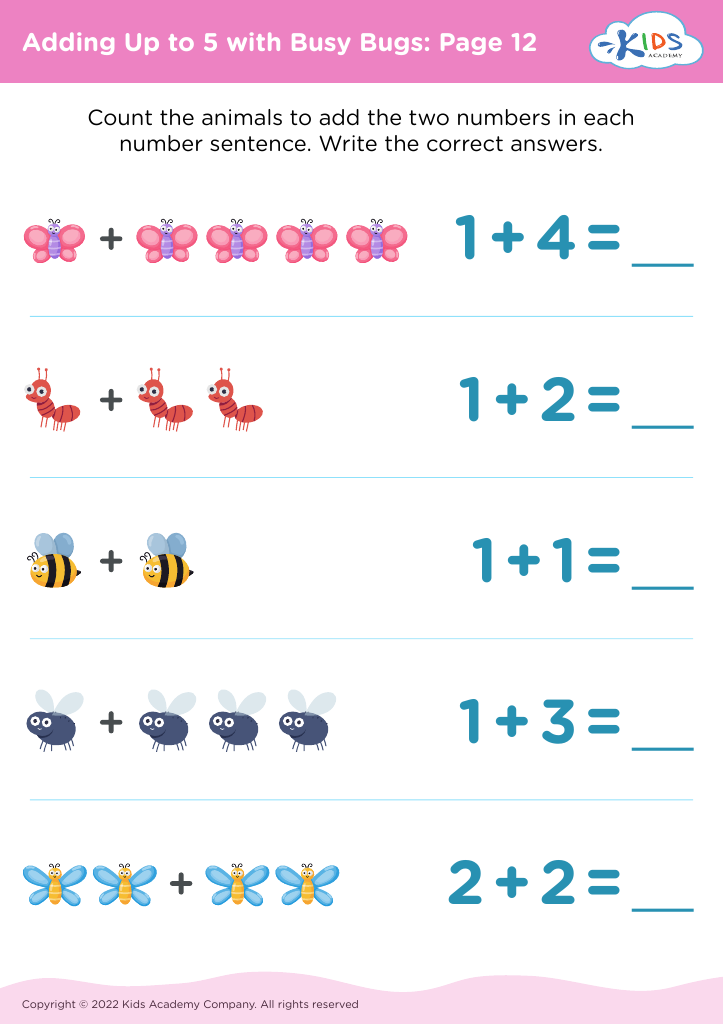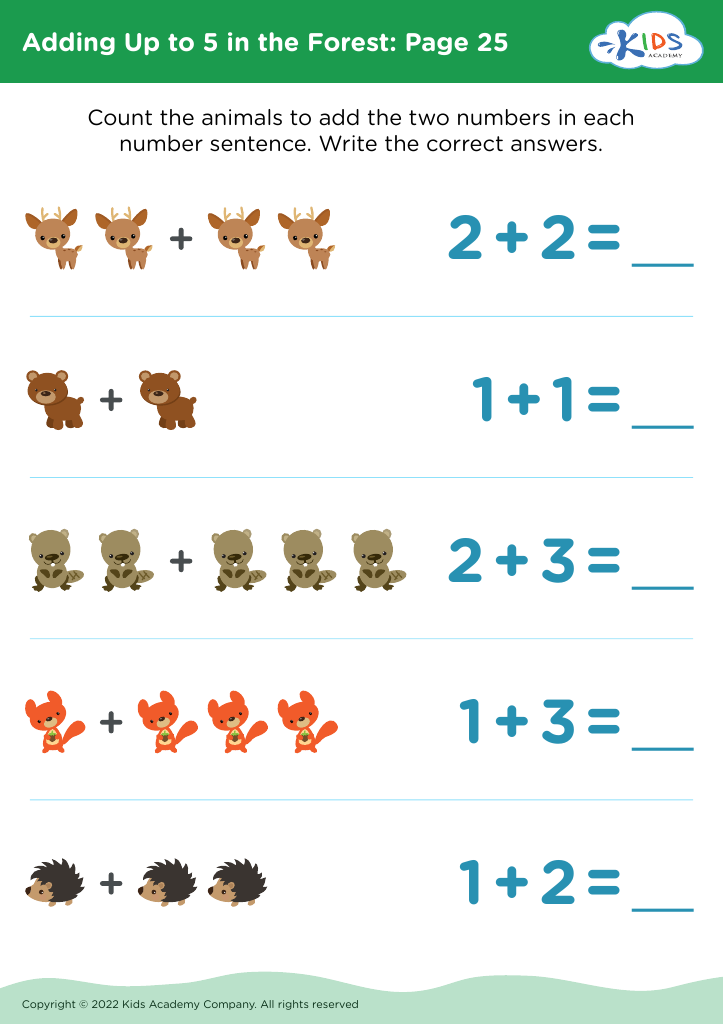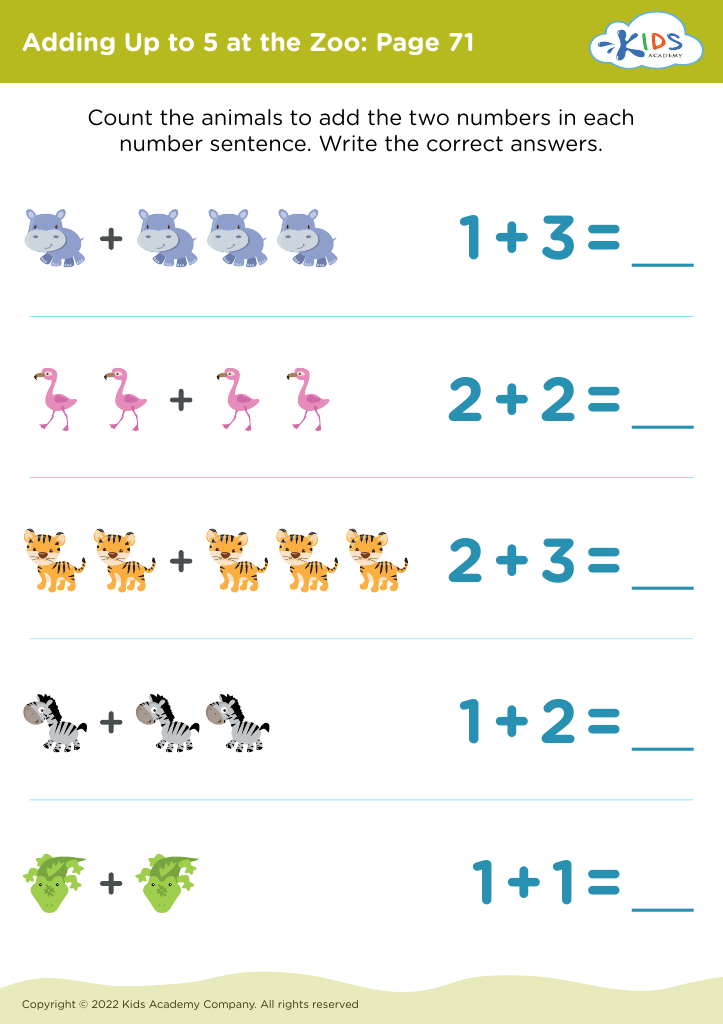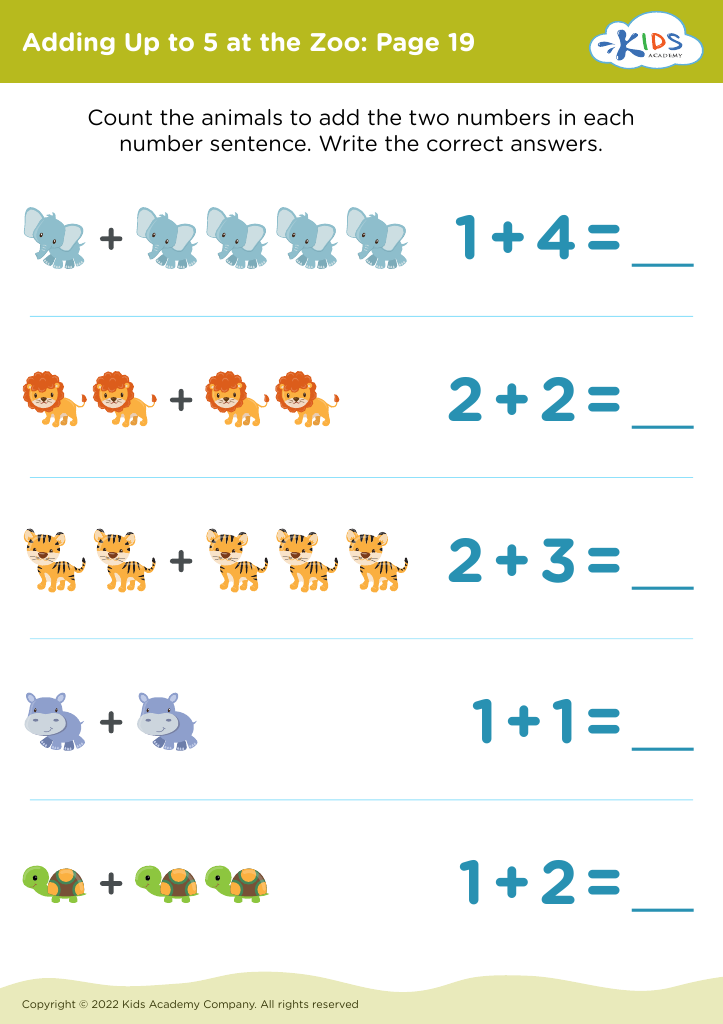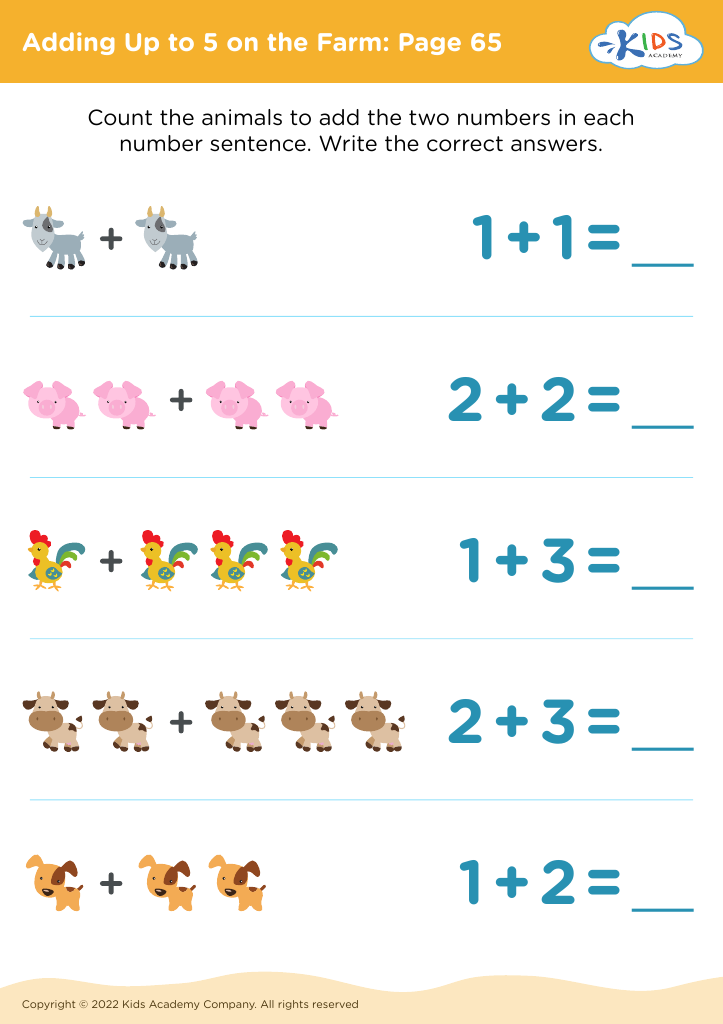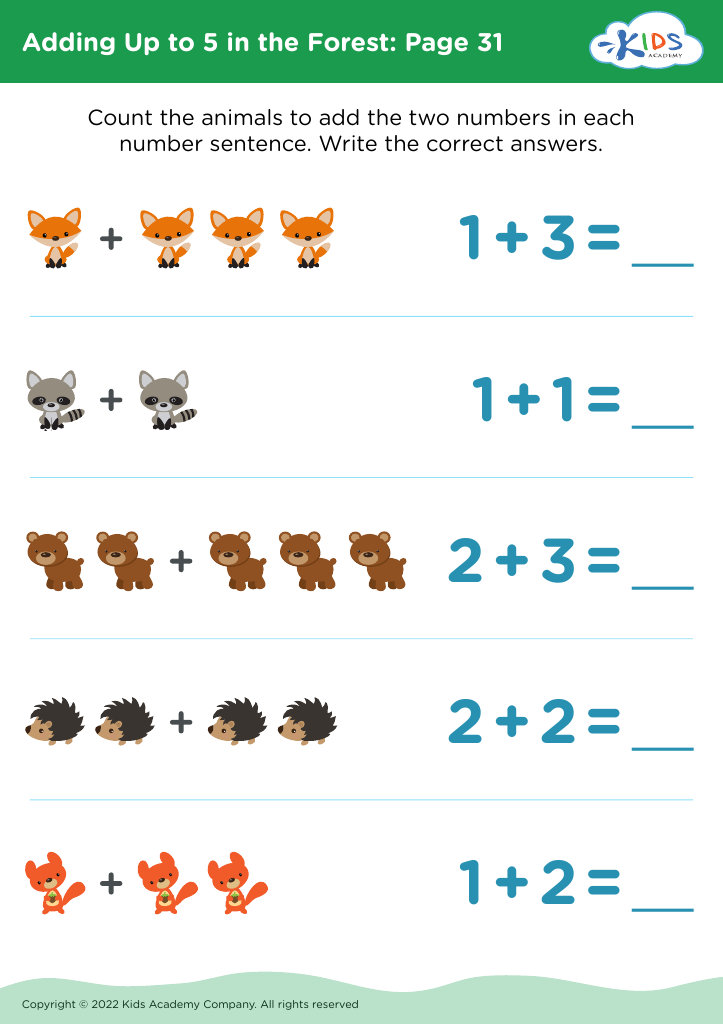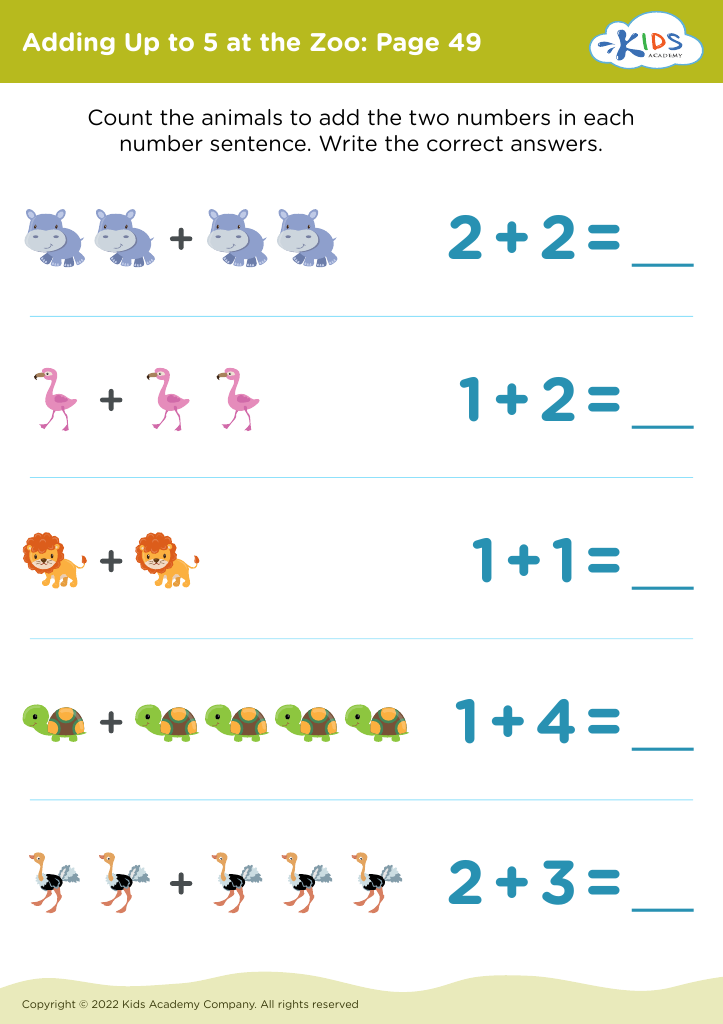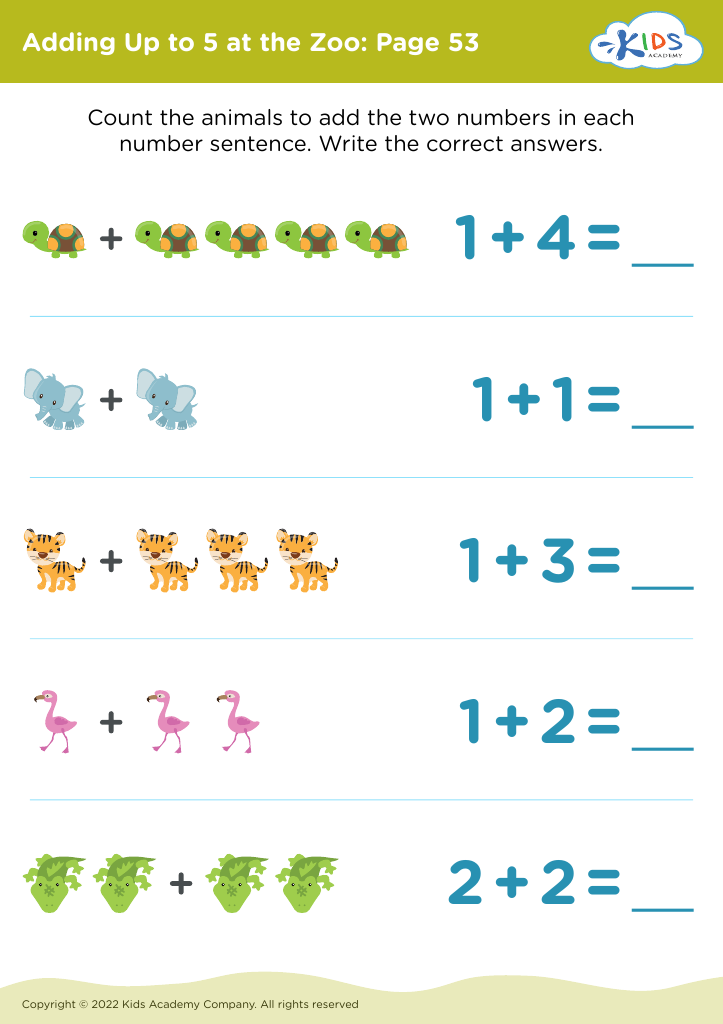Basic arithmetic practice Addition & Subtraction Worksheets for 4-Year-Olds
13 filtered results
-
From - To
Welcome to our Basic Arithmetic Practice: Addition & Subtraction Worksheets tailored for 4-year-olds! Our engaging worksheets are designed to make learning foundational math skills fun and interactive. Each activity encourages young learners to practice simple addition and subtraction through colorful visuals and relatable themes, fostering a love for numbers. These worksheets not only enhance mathematical understanding but also promote critical thinking and problem-solving. Perfect for parents and teachers, our resources can be easily incorporated into daily learning routines or as printables for classroom activities. Start your child's math journey today with our expertly crafted resources!
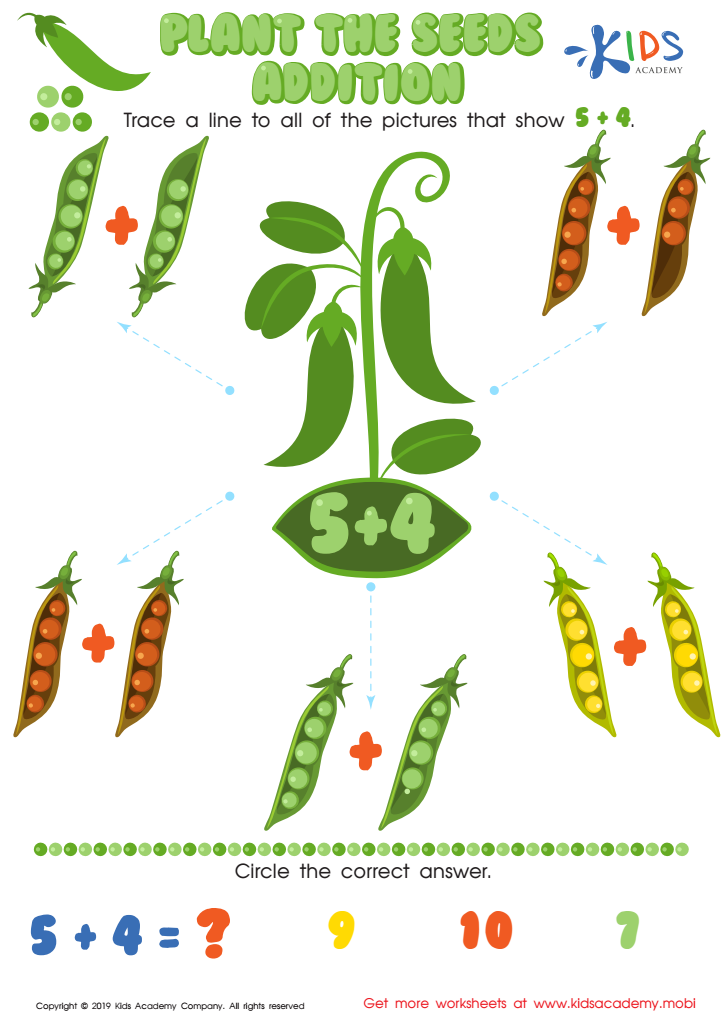

Plant the Seeds Addition Worksheet
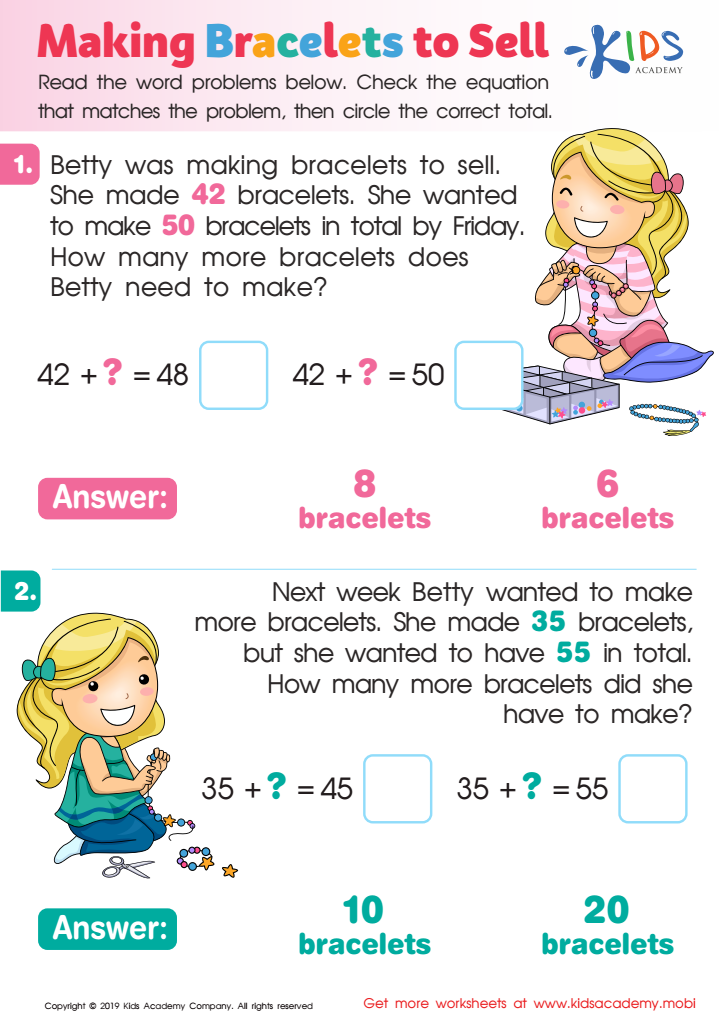

Making Bracelets to Sell Worksheet
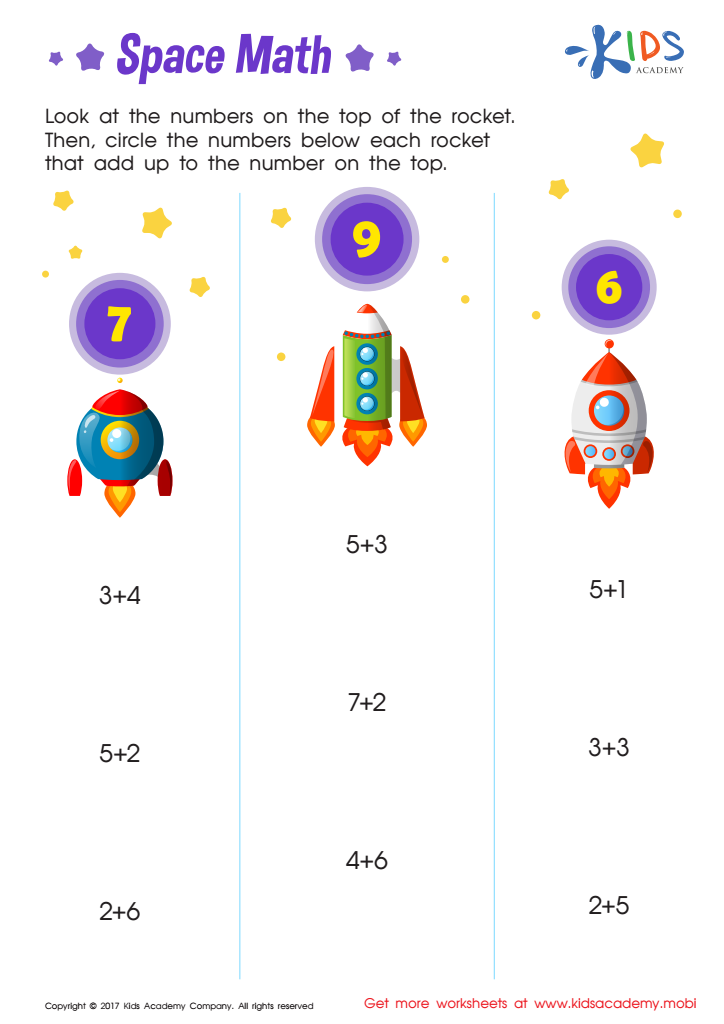

Addition: Space Math Worksheet
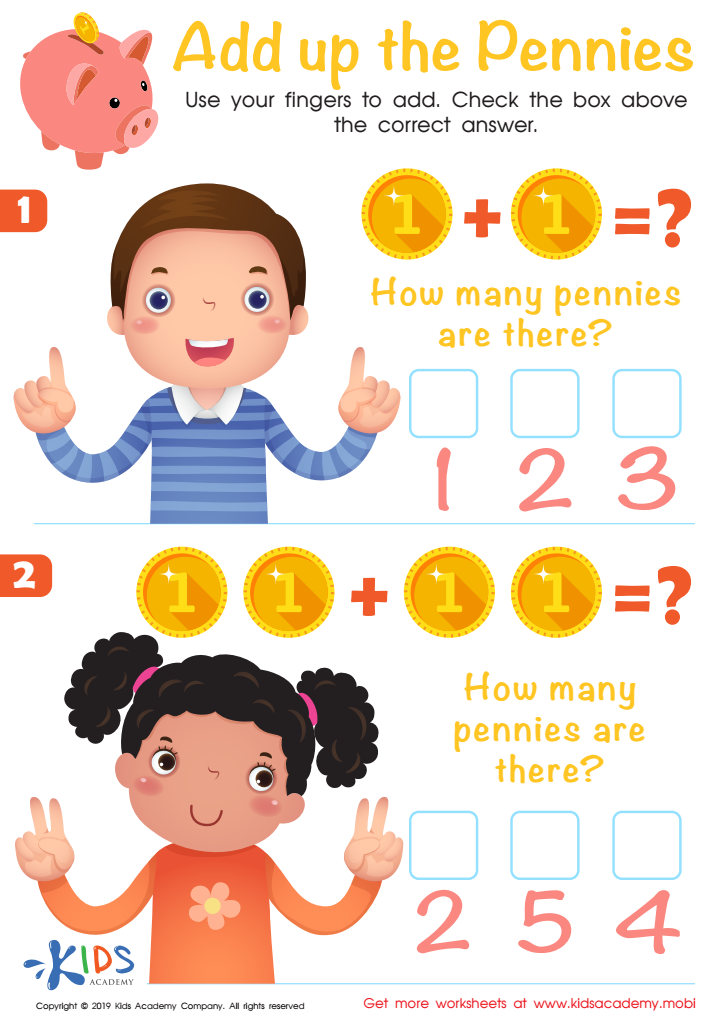

Add up the Pennies Worksheet
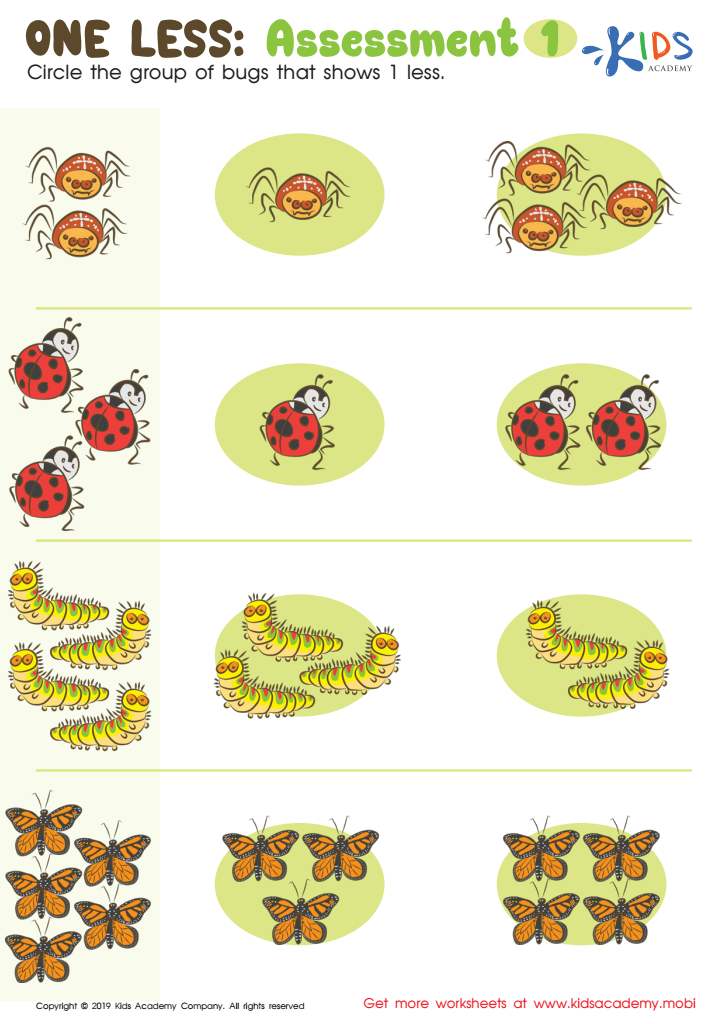

One Less: Assessment 1 Worksheet
Basic arithmetic practice, specifically addition and subtraction, is crucial for 4-year-olds as it lays the foundation for all future mathematical learning. Engaging young learners in these concepts fosters critical cognitive development, enhancing skills such as problem-solving, logical reasoning, and number recognition.
At this age, children are naturally curious and eager to explore numbers, making it an ideal time to introduce such practices. These skills not only support math comprehension but also promote a positive attitude towards learning, building confidence as they solve problems. Additionally, incorporating addition and subtraction into everyday activities—like counting toys or sharing snacks—makes math relevant and fun.
Furthermore, a solid grasp of these basic operations can significantly ease the transition into more complex topics in later grades, such as multiplication and division. It also enhances other educational areas, including reading and reasoning skills, as children develop the ability to follow instructions and patterns.
Ultimately, emphasizing arithmetic practice at this stage is not just about numbers; it’s about nurturing a love for learning and equipping children with the essential tools they need to succeed academically and in everyday life. Parents and teachers play a vital role in creating an engaging and supportive environment for this early learning phase.
 Assign to My Students
Assign to My Students

